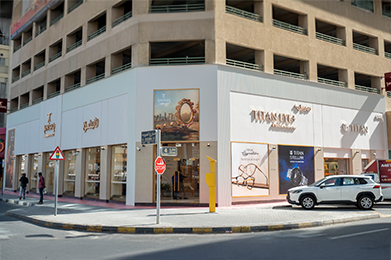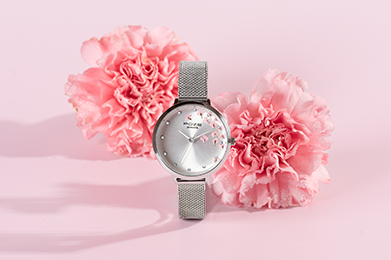An office for the people, by the people
Livemint does a beautifully articulate story on Integrity, the new Titan Company address.
Some office campuses put their occupants on the map; other campuses redefine the contours of the map itself. Titan Co. Ltd’s corporate headquarters in Bengaluru’s Electronics City does the latter. Many of its neighbours have huge campuses that have helped establish the Garden City’s credentials on the global technology landscape over the last several years. But the Titan office shapes the Indian corporate architecture map by performing outside the remit of buildings: it appears to float.
The biophilic, or nature-loving, campus looks like a jewelled emerald island or a brightly lit ship, surrounded by water. Its open-air, asymmetric campus consists of three low-rise, stone-clad buildings. Located next to a natural lake, and separated by waterways, the buildings are connected by a central covered spine and several walkways, giving the illusion of a floating island, with lush green cover on all floors. Like a cruise ship, workspaces on each floor in this campus are wrapped with terraces and balconies, where employees can step out for a break, often kicking off their shoes, as they make most of the grassy lawns.
For the people, by the people
Both the site’s location and architectural design were deliberate picks, says Titan’s long-serving managing director Bhaskar Bhat. “This office is for the people, and the connect with nature was to do with giving the employees a good experience, because that is what they said they wanted when we surveyed them. It is a people’s home. They have been involved in creating the brief of the design. This design was showcased in our old office. No one believed it would turn out like this,” he says.
The company ran a design competition among six architects, ultimately entrusting Sanjay Mohe, co-founder of Mindspace Architects. The company was impressed with his response to the biophilic brief. Biophilic design is “a framework for the satisfying experience of nature in the built environment…which seeks to create a good habitat for people, as a biological organism in the modern built environment, that advances people’s health, fitness and well-being”, write environmental experts Stephen Kellert and Elizabeth Calabrese in The Practice of Biophilic Design, a handbook on the subject.
A biological organism the campus certainly is. For Mohe, the campus is a “non-building. Over time, the trees will grow and the building will disappear. It will look like a waterway with a hill on either side. Every workspace has a terrace connected to nature and water. The maximum depth of any workspace is 20 feet, so that everyone gets natural light. We believe in making nature an integral part of the work environment. The weather in Bengaluru is wonderful 90% of the time, so an indoor-outdoors connect is possible”.
Engineering comfort
“Non-building” also translates as the exact opposite of a sealed box, or office buildings as most of us know them. Minimal links to the outdoors, unopenable windows, an emphasis on elevators rather than staircases, and 100% air conditioning make these buildings easy to execute, but they have no biophilic quotient.
Palani Kumar, vice president of integrated retail services at Titan Co. and the technical project head, shared one of the biggest challenges of constructing a “non-building”, in terms of doing away with air conditioning altogether, without compromising on comfort. Comfort for a person depends on three factors—temperature, humidity and airflow or ventilation. The basic principle is that increased airflow, such as a breeze, can deliver a sense of comfort even at higher temperatures than normal indoor air conditioning.
“The temperature is maintained at 27 degrees. We have large ceiling fans to improve air flow and a two-stage evaporative air cooling system by which water is evaporated. The resulting cooled, fresh air is pumped in the building. There’s no recirculation of air and hence it is 100% fresh air. There are energy-efficient chillers when humidity goes up, and wind tunnels have been created through the building to keep it cool,” explains Kumar.
Reducing heat load, in terms of comfort as well as energy-efficiency, was a strategic objective for the building. These were met by several measures—daylighting plan and building orientation, constructing a green wall on the western side to prevent heat gain, installing special glazing for greater light and less heat penetration, stone-cladding, no air conditioning even in data centres, and providing energy-efficient laptops rather than desktops.
Lower power bills are a long-term gain; there have also been other immediate rewards. The facility was recently awarded a platinum rating by the LEED (Leadership in Energy and Environmental Design) green rating system and will apply to GRIHA (Green Rating for Integrated Habitat Assessment), the home-grown version of green rating systems.
Other drivers
Project success was also predicated on revised workplace policies. Relocating anywhere in Bengaluru can be perilous. Titan was sensitive to the big move to south-east Bengaluru from its former office in the east. After much deliberation, the firm decide to do a swap—in exchange for fewer days off annually, daily working hours were reduced, and flexi-time policies were enhanced, with employees free to come in as early as 7.30am and leave by 4pm. More than 50 vans were commissioned to ferry employees across the city and help with the commute. “We have invested with trust that employees will not work less,” explains Bhat.
An emotional engagement
Biophilic design encourages a powerful emotional attachment to particular settings and places, write Kellert and Calabrese. Titan employees are, predictably, ecstatic with their new home. Revathi Kant, chief design officer, notices that “in a natural environment, everyone feels comfortable, thinks differently, it leads to more constructive discussion, better insights. The energy, vibe, motivation levels—all have gone up”.
Collaboration and privacy have also been addressed. Balancing “we” and “me” space is a challenge in most offices, which often run out of conference rooms, but here the “me” space is particularly special—each employee is free to find their own perfect outdoor spot. “There are days when our Monday mornings meetings happen with our shoes off and we walk on the grass. When I need my private time, I just step out in a foyer and put on my headsets. I don’t mind coming to office because it doesn’t feel like office,” gushes Kartiki Karihaloo, communication head, eyewear.
Others appreciate the sense of wellness fostered by working in a biophilic space. “I’m sensitive to cold and always had to carry sweaters. In the old office in conference rooms, I would have to figure out how to avoid the air-conditioning blast on my head. Natural fans caliberate the right temperature,” says Ruchika Sharma, head of marketing for the fragrance business.
Titan is one of India’s most innovative companies—constantly experimenting with new product categories, and often creatively tackling social issues through its advertising. Now, it has sparked our imagination and reinvented its physical avatar, rewriting the map on biophilia. Let us see where the ship sails.






